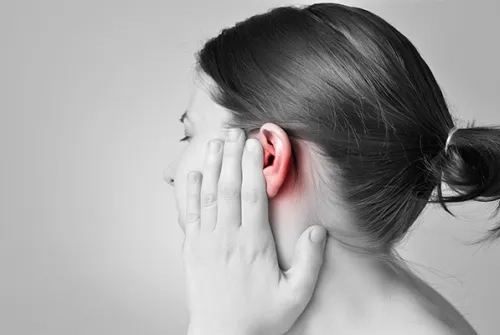Alo Yeditepe
Alo Yeditepe
Ear Pain During Flight Can Be a Sign of Some Diseases!
Otolaryngologist Assoc. Prof. Dr. Mehmet İlhan Şahin stated that ear pain that can occur during flights is not usually taken seriously, and that these pains may indicate various nose diseases. Assoc. Prof. Şahin stated that the pain experienced may be a sign of an inflammatory disease, structural disorder, or even a tumor in the nose, and warned that if the disease process continues, this problem may cause a collapse of the eardrum, inner ear damage, and even irreversible hearing loss. Therefore, he advised to urgently consult an otolaryngologist if you frequently experience ear pain and ear blockage during flights. Ear pain during flights can be a sign of various problems that may require treatments ranging from minor to major surgeries, depending on their severity. Therefore, Assoc. Prof. Mehmet İlhan Şahin, an otolaryngologist at Yeditepe University Kozyatağı Hospital, pointed out the importance of taking ear pain during flights seriously, saying that "temporary ear blockage during flights is not of great importance. However, if the blockage lasts long and pain occurs in the ear, this may be a sign of significant nose or throat diseases."
Ear Pain Should Be Taken Seriously!
Dr. Şahin explained the reason behind this problem as follows: "The 'Eustachian tube' that extends between the nose and the ear ventilates the ear and balances ear pressure when there is a change in atmospheric pressure. The reason for ear pain problems is precisely due to the poor functioning of this tube. Therefore, nasal inflammatory diseases, structural abnormalities, adenoid growth, allergic problems, or tumors can cause this. It is useful for individuals who frequently experience ear blockage or permanent blockage in their ears, especially those who experience ear pain during flights, to consult an ear, nose, and throat specialist."
"Atmospheric Pressure Changes Can Cause Damage to the Inner Ear"
Ear, Nose and Throat Diseases specialist Assoc. Dr. Mehmet Ilhan Sahin emphasized that not only during flights, but also during any mode of transportation, ear pain should be taken seriously. "Most people who have had long-term nasal congestion have become accustomed to their condition and do not realize the problem they are experiencing. Therefore, they should pay attention to 'ear pain.' Otherwise, this problem can lead to collapses in their ears, much more serious irreversible hearing problems as the process continues," he said.
"If You Have a Cold or the Flu, Make Sure to Get Treatment Before Your Flight"
According to Assoc. Prof. Şahin, "It is normal for people with a stuffy nose due to a cold or the flu to experience ear pain during flights. However, it is recommended that these individuals receive treatment before traveling. If the nasal congestion is too severe, ear pain during the flight can cause damage to the eardrum and inner ear. Therefore, especially for those who regularly travel by plane and experience ear pain on every flight, the problem may become chronic."
"Pain alongside Dizziness Indicates an Emergency Situation"
According to Assoc. Prof. Dr. Şahin, "If treatment is delayed, problems such as collapse of the eardrum, inflammation in the ear, and perforation of the eardrum may occur. If sudden pain occurs during a flight and is accompanied by dizziness, this indicates a very serious and urgent problem. People experiencing such a situation should seek medical attention as soon as possible after the flight.
Crying Fits of Infants and Children Should be Taken Seriously During Flights
Another common issue during flights is the pain fits experienced by young children, as reminded by Assoc. Prof. Dr. İlhan Şahin. "Although it is generally perceived as a normal condition, parents should be careful about this issue. If the child or infant is crying excessively and cannot be comforted, it should be taken seriously. As the problem may be related to ear pain, it is beneficial to consult a physician for children who experience serious crying fits during flights."
Surgical Treatment Methods Vary Depending on the Problem
Assoc. Prof. Dr. Şahin stated that they apply surgical treatment to those who have structural problems in their noses and use drug therapy for inflammatory or allergic problems. Assoc. Prof. Dr. Şahin provided the following information regarding treatments performed for different problems: "Especially in individuals with large adenoids who experience ear pain, ear blockage, and hearing loss, or in children, we perform surgical procedures such as removing the adenoids or applying 'ear tubes' if the ear does not ventilate well. In addition, we apply drug therapy to open the nose. If drug therapy is not sufficient, surgical treatments such as correcting bone and cartilage deformities, removing or reducing enlarged tissues may be necessary. In individuals who constantly have a problem of ear blockage, there are practices such as tube therapy for ventilating the ear, as well as methods such as opening the blocked Eustachian tube with a balloon. Therefore, in addition to nose problems, balloon dilation of the Eustachian tube may also be necessary in individuals with chronic Eustachian tube problems and associated hearing loss."
"The Patient Can Return to Work Immediately After Treatment"
Stressing that the surgical methods and techniques used for treatment are increasingly developing, Associate Professor Doctor Şahin, an Otorhinolaryngology specialist at Yeditepe University Hospitals, said the following: "Especially with endoscopic methods aimed at correcting problems, short-term procedures can be found. Significant comfort can be provided to patients after the application. With endoscopic procedures where no tampon is applied during surgery, the patient can be discharged on the same day. In addition, after the 'endoscopic tube expansion surgeries' that we apply to open the blockage in the ear, the patient can return to work the next day."
Emphasizing that patients who require surgery should not delay the operation due to their anxiety about it, although not every blockage requires surgery, Associate Professor Dr. Şahin said, "The disease itself should cause anxiety, not the operation. Therefore, if there is a problem, an expert should be consulted."
Press Coverage: tele1 | cnnturk | sabah | halktv | cumhuriyet | yeniakit | timeturk | yenicaggazetesi
This content was prepared by Yeditepe University Hospitals Medical Editorial Board.
”
See Also
- What is Balloon Sinuplasty? A Bloodless and Effective Method in Sinusitis Treatment
- What is Laryngeal Cancer? Symptoms, Risk Factors, and Treatment Methods
- What Are Head and Neck Cancers? Diagnosis and Treatment
- Causes and Treatment of External Ear Inflammation
- What is a Neck Mass?
- Tonsillectomy in Children
- They Said He Could Never Speak Again Due to Laryngeal Cancer, But Today After the Surgery He Underwent, He Can Speak!
- Pool and Hot Weather Trigger Ear Eczema
- Hearing Health
- Allergic Rhinitis Targets People in Big Cities
- Can Nutritional Defects Underlie Middle Ear Inflammation?
- Stem Cell May Be the Future Cure to Hearing Loss with Bionic Ear as Hope
- Nasal Sprays Can Be Addictive!
- Adenoid and Tonsil Problems in Children
- Nasal Sprays Can Be Addictive
- When Should Adenoid Surgery Be Performed in Children? When Should It Not Be Done?
- Treated For Asthma For Two Years But Has Had A Tumour In Her Trachea
- Treatment without Tampons in Nasal Surgeries
- Chance of Treatment in Patients Who Have a Tube Inserted in Their Throat to Breathe
- Can Infection Cause Permanent Hearing Loss?
- He Was Ashamed to Speak, and He Was Reborn with His New Voice
- Survived from Tumor Covering Half of Larynx With Closed Surgery
- Beware of hoarseness lasting longer than 15 days!
- Don’t Let Allergic Rhinitis Spoil Your Life
- Throat Infection
- ENT Problems Seen in the Summer
- Nose Bleeding
Alo Yeditepe








